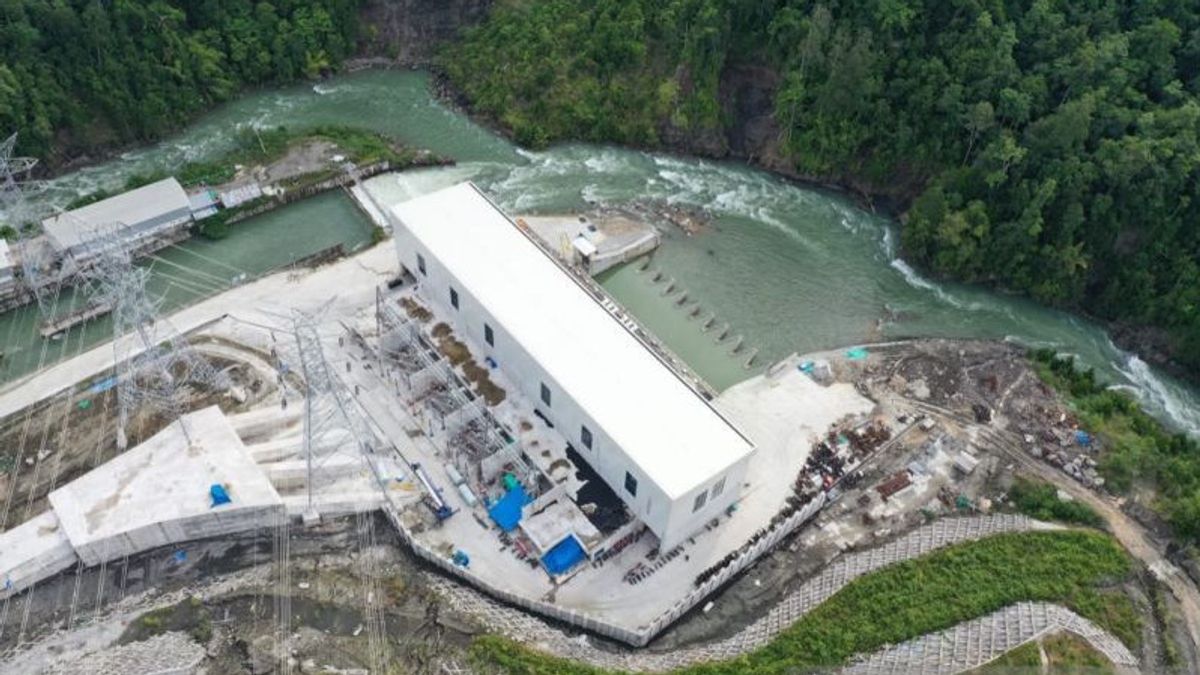JAKARTA - Research results from the Renewable Global Status Report 2022 (GSR 2022) made by the REN21 agency state that the application of renewable energy is actually the best solution in order to overcome current energy price fluctuations.
"Renewable energy is the most affordable and best solution to overcome fluctuations in energy prices," said REN21 Executive Director Rana Adib, in a statement in Jakarta, Thursday.
According to the GSR 22 report, the global renewable energy transition is not happening, despite many promises to make a green recovery after the pandemic.
This condition, according to the report's research results, makes it impossible for the world to meet its climate targets this decade.
"Despite evidence that renewable energy is the most affordable energy source to increase resilience and support decarbonization, the world's governments continue to subsidize fossil energy. The gap between ambition and state action is a clear warning that a global energy transition is not happening," said REN21 Executive Director Rana Adib in an official statement, Thursday, June 16.
In his research, Rana said, ahead of the United Nations Climate Change Conference (COP26) in November 2021, 135 countries have pledged to achieve zero greenhouse gas emissions by 2050.
However, only 84 countries have broad economic targets for renewable energy, and only 36 have targeted 100 percent renewable energy.
For the first time in the history of the UN Climate Summit, continued Rana, the COP26 declaration mentioned the need to reduce coal use, but failed to call for a reduction target for either coal or fossil fuels.
Most of the increase in global energy use by 2021 will be met by fossil fuels, which resulted in the largest spike in carbon dioxide emissions in history, rising by more than 2 billion tonnes worldwide.
On the other hand, although the electricity sector recorded a record addition of renewable energy capacity, 314.5 giga watts, up 17 percent compared to 2020 and generation (7,793 terawatt-hours), this record was not able to meet the 6 percent increase in electricity consumption overall.
"GSR 2022 makes it clear that meeting climate targets will require massive effort, and that the momentum related to Covid-19 has passed without being taken advantage of," he said.
Rana continued, 2021 also marks the end of the era of cheap fossil fuels, with the biggest spike in energy prices since the 1973 oil crisis.
By the end of the year, gas prices were about 10 times their 2020 prices in Europe and Asia and three times that in the US, leading to a spike in electricity prices in key markets in late 2021.
"Russia's invasion of Ukraine exacerbated the ongoing energy crisis, causing an unprecedented commodity shock wave that weighed heavily on global economic growth, rattling more than 136 countries that depend on imports of fossil fuels," he said.
Meanwhile, the second half of 2021 marks the beginning of the biggest energy crisis in modern history, which was exacerbated by Russia's invasion of Ukraine in early 2022.
"The reality is that, in response to the energy crisis, most countries have returned to looking for new sources of fossil fuels and burning more coal, oil and natural gas," Adib said.
Furthermore, Rana said, renewable energy is the most affordable and best solution to overcome fluctuations in energy prices.
"We must increase the share of renewable energy and make it a priority for economic and industrial policies. We cannot extinguish fires with more fires," he said.
The GSR 2022 document reveals that, despite new commitments to climate action, the government still chooses to subsidize fossil fuel production and use it as a first option to reduce the impact of the energy crisis.
Between 2018 and 2020, the government spent 18 trillion US dollars or 7 percent of global GDP in 2020 on fossil fuel subsidies, in some cases while reducing support for renewable energy (as in India).
This trend reveals a worrying gap between ambition and action.
It also ignores the many opportunities and benefits of a transition to a renewable economy and society, including the ability to achieve more diverse and inclusive energy governance through local energy generation and value chains.
Countries with a higher share of renewable energy in their total energy consumption enjoy greater energy independence and security.
"Instead of eliminating renewable energy and relying on fossil energy subsidies to ease the burden on people's electricity bills, the government should provide direct support to install renewable energy systems in (economically) vulnerable homes. In the end, renewable energy pathways will prove to be cheaper ( in terms of budget effectiveness) although it requires a large initial investment," he concluded.
The English, Chinese, Japanese, Arabic, and French versions are automatically generated by the AI. So there may still be inaccuracies in translating, please always see Indonesian as our main language. (system supported by DigitalSiber.id)












